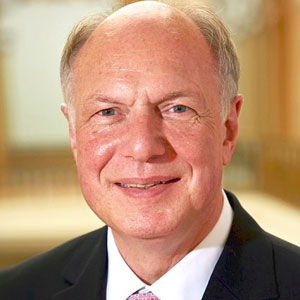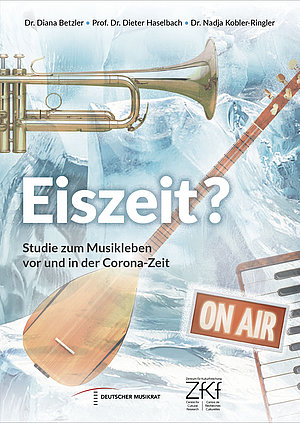Music in times of crisis
Music connects people and cultures across borders - strengthening social cohesion and our democracy.
The Power of Music in Times of Crisis
Does music help in crisis situations? The answer to this question is definitely yes. It is even urgently necessary. In view of the rifts and newly erected boundaries in inner-societal and international dialogue, changes in the nature and structure of conflicts, and the resulting perceived loss of security, it makes sense to look for alternative ways of communication and self-assurance as well as new perspectives and visions for successfully shaping the future. Music is an excellent "instrument" for this. Although it cannot resolve conflicts over issues, it is capable of bridging ideological divides by virtue of its universal power, and it can bring people together in a shared experience of life.
Solidarity with Israel

Together with the Music Industry Forum, GEMA, GVL and the Conference of State Music Councils, the German Music Council joins the call of the German Cultural Council for solidarity with the people of Israel. We are horrified by the attacks on civilians. Hamas' terrorist attack and the suffering it has brought to people are beyond words and a new, terrible wake-up call that anti-Semitism must have no place in our society. We stand against anti-Semitic hatred and our condolences go out to the victims and their families who were deliberately chosen as targets of terror and torn from their lives.
In its resolution “Protecting Jewish lives – confessions alone are not enough” passed by the 2019 general meeting, the German Music Council clearly opposes any form of anti-Semitism, right-wing extremism and right-wing terrorism.
Solidarity with Ukraine
Since the outbreak of Russia's war of aggression against Ukraine, millions of people in Ukraine are currently threatened and on the run. The hitherto accepted political rules of Europe have been massively broken by the war.

The brutal war that President Putin is waging against Ukraine appalls the German Music Council. The war represents a serious attack on the basic principles of democracy and freedom in Europe, a catastrophe for the civilian population of Ukraine, and also a blow to the traditional and diverse cul-tural life in Ukraine, much of which will be lost in the destruction and because of the unclear future prospects. We stand in solidarity with the citizens of Ukraine, whether in the country or in exile, and will stand up for them together with the members of the German Music Council. Music unites all peace-loving people - whether in Ukraine, Russia, or elsewhere. In these difficult days, music is able to create a sense of connection, to give comfort, and to mobilize the strength to cope with the enormous political and social tasks that now lie ahead.
President of the German Music Council
In culture, as in other areas of German society, there are clear signs of solidarity in the response to the war. The German Music Council provides information online here about solidarity and aid measures from the music sector. This includes the close partnership of the German Youth Orches-tra with the Youth Orchestra of Ukraine and their campaign "United for the Future" - this was the title of the two orchestras' joint work phase and benefit concerts in Berlin, Hanover, and Cologne. This act of international understanding and the bringing together of the musical youth of the two nations was accompanied by a great deal of media interest. Many thousands of Euros were raised through the benefit concerts and – like the contributions collected by the German Youth Orchestra with its fundraising campaign since February 2022 – have been transferred to the Youth Orchestra of Ukraine. This project, which is particularly important in the current times, was supported by the Federal Ministry for Family Affairs, the Goethe-Institut, and the German Foreign Office. The live stream of the concert from the Berlin Philharmonie is available online here, so you can also experi-ence the enormous musical quality of the united orchestra.
Residency Program to Support Refugee Musicians from Ukraine
The funding program "U*music" enabled residencies with German ensembles for refugee Ukrainian, Belarusian, and Russian musicians. With funding from the Federal Commissioner for Culture and Media, the German Music Council arranged a total of 85 residencies with German ensembles and orchestras in the early fall of 2022. The residencies were funded with up to 6,500 Euros.
The goal of the program was to help refugee musicians maintain their artistic quality, provide them with work and employment opportunities, and help them make a creative new start in Germany by integrating them into existing ensemble structures.
Music in the Pandemic Era
Music is able to touch people directly at the deepest level of their being and can help to process crises and difficult situations, which was clearly demonstrated during the years of the Corona pandemic. Already during the first lockdown from April to May 2020, demographically representative surveys were collected worldwide: in one example, researchers in the journal Humanities and Social Sciences Communications noted that more than half of respondents reported using music to cope with emotional and social sources of stress, People with more pandemic-related negative emotions used music primarily to regulate anxiety, depression, and stress, according to the study.
And how are musicians faring during the pandemic? Badly: as early as March 2020, the German Music Council conducted an initial online survey with nearly 1,000 participants, which drew an alarming picture of the effects of the Covid-19 measures on professional musical life as well as the amateur music sector. Based on the results of the study, the music council outlined the most pressing areas for action and developed corresponding music policy demands for sustainable support and stabilization of musical life in order to counteract a massive loss of income and prospects.
Study of Musical Life Before and During the Corona Pandemic
In April 2021, the German Music Council published a comprehensive study, "Ice Age? Study of Musical Life Before and During the Corona Pandemic." Among other things, the study examined how the first and second lockdowns affected musicians' incomes, how pandemic financial aid was perceived and evaluated, and what medium- and long-term effects of the Corona era can be expected.
The study was based on both a quantitative survey with nearly 2,900 participants and a qualitative survey with 39 participants, and was conducted on behalf of the German Music Council in February and March 2021 by Prof. Dr. Dieter Haselbach, Dr. Diana Betzler, and Dr. Nadja Kobler-Ringler from the Center for Cultural Research.
The Rescue Package for the Culture and Media Sector: NEUSTART KULTUR
The Corona pandemic put the entire music sector to the test. With NEUSTART KULTUR (RESTART CULTURE), the German government responded in the summer of 2020 by launching a rescue and future assistance program worth one billion Euros to sustain the cultural sector and cultural infrastructure in the long term.
Since July 2020, programs have been developed and implemented in close consultation with the various umbrella organizations from the cultural and media sectors. Behind the subprograms are nearly 60 individual funding lines that target the specific needs of artists in the individual branches of culture and media. The German Music Council plays a key role in implementing the subprograms for the music sector: With funds from the Federal Commissioner for Culture and Media, it has put enormous effort into supporting the music sector as part of the programs "NEUSTART KULTUR - Digitization Music Trade", "NEUSTART KULTUR - Ensembles" and the "German Music Council Scholarship Programs 2022 and 2023".

